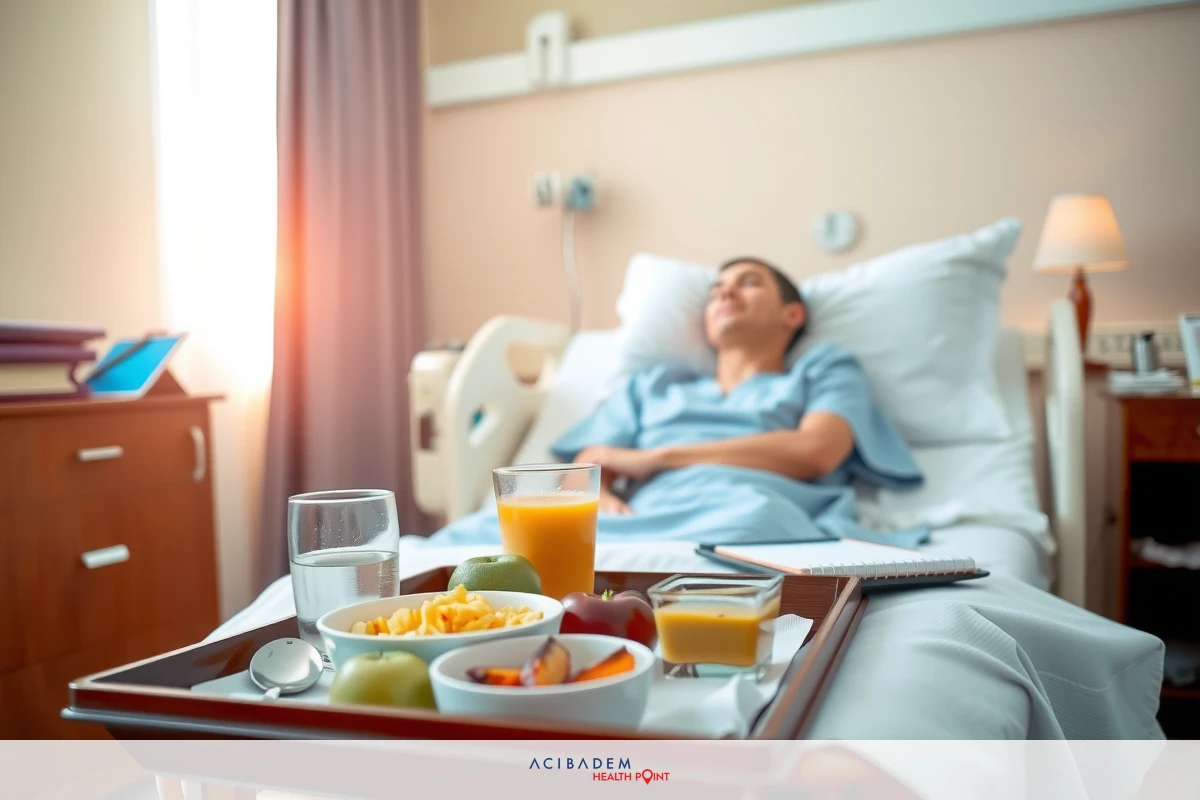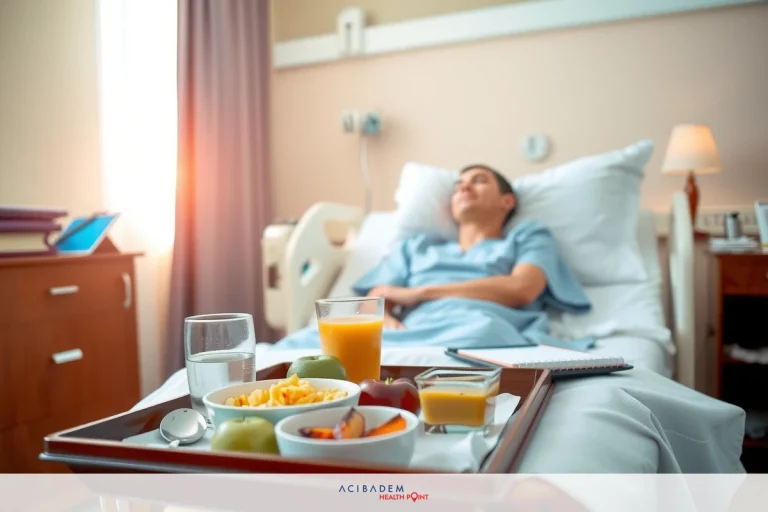What Can You Not Eat After Rhinoplasty
What Can You Not Eat After Rhinoplasty Rhinoplasty, a treatment that brings aesthetic and functional changes to your nose, requires careful attention during recovery. Postoperative care involves strict dietary regulations to ensure optimal healing. Consumption of certain foods might impede the healing process or even lead to complications.
The immediate postoperative period is crucial for recovery. The body demands nourishment yet it’s critical not to strain the surgical area. Consumables such as spicy and acidic foods may cause discomfort by irritating the healing tissues thus should be avoided.
Easy-to-chew food items fall under recommended consumptions following rhinoplasty. They pose less pressure on the nose while eating and promote smooth recovery. Balancing this with proper hydration aids in enhancing overall wellness during this delicate phase.
Immediate Postoperative Period
The immediate postoperative period after rhinoplasty is a critical phase where dietary restrictions play a pivotal role in promoting healing and reducing the risk of complications. The body undergoes significant physical stress during this time, making proper nutrition imperative for recovery. However, it’s equally essential to understand what not to consume as certain food items can contribute negatively to your recuperation process.
In general, it’s recommended that patients steer clear from hard-to-chew foods and alcohol. Consuming tough meats or raw vegetables could exert pressure on the surgical area leading to discomfort or even damage while alcohol can exacerbate swelling and prolong healing time due its dehydrating effect. Additionally, caffeinated beverages should be avoided as they may cause dehydration which hinders the healing process.
Patients are also advised against spicy foods during this crucial period following rhinoplasty surgery. Capsaicin – the compound responsible for spiciness in various cuisines – has been known to trigger inflammation which isn’t ideal when you’re trying to recover from a surgical procedure like rhinoplasty. This guideline falls under both dietary restrictions and food restrictions that are paramount in ensuring optimal postoperative care.
Adopting eating guidelines conducive for recovery also means supplementing your diet with adequate hydration and nutrient-rich foods such as fruits, lean proteins, whole grains and vegetables (preferably cooked until soft). These food groups provide vitamins and minerals necessary for wound healing while keeping you satiated without straining your nose area unnecessarily.
Remember that every patient responds differently to surgery so always consult with your surgeon about specific dietary needs based on personal medical history before making any drastic changes in diet after undergoing rhinoplasty.
Avoid Spicy and Acidic Foods
Spicy and acidic foods are classified as potential irritants which can escalate discomfort during the healing process after rhinoplasty. Capsaicin, a compound found in chili peppers, stimulates pain receptors that cause an inflammatory response. This physiological reaction may prolong the inflammation cycle in your nasal tissues, extending your recovery period.
Similarly, acidic foods such as citrus fruits or tomato-based products can also contribute to irritation at the surgical site. The acid content of these food items might interfere with tissue repair processes by aggravating sensitive areas within the nose. It’s wise to adhere to dietary restrictions advocating for non-irritating alternatives until you’ve fully recovered.

In addition to physical discomfort, consuming spicy or acidic foods post-rhinoplasty could potentially lead to other complications like indigestion or heartburn which is something one would rather avoid when recuperating from surgery. Digestive disturbances caused by such foods can exacerbate systemic inflammation thereby indirectly affecting wound healing.
It’s crucial not only for your comfort but also for unhampered healing that you follow established eating guidelines avoiding irritant food types till complete recovery is achieved postoperatively. Adhering strictly to these dietary rules will ensure optimal conditions conducive towards effective wound closure without unnecessary hindrances delaying this vital process.
While it might seem challenging initially especially if you’re fond of tangy flavors and spicy kick in meals, it’s essential remembering this phase of stringent dietary regime is temporary yet pivotal for smooth overall recuperation following rhinoplasty procedure.
What Can You Not Eat After Rhinoplasty: Soft and Easy-to-Chew Foods
Incorporating soft and easy-to-chew foods into your meals is a key recommendation in the dietary guidelines to follow after rhinoplasty. The act of chewing, especially hard or crunchy food items, can put undue pressure on the nose which may exacerbate swelling or cause discomfort at the surgical site.
Foods like mashed potatoes, scrambled eggs, yogurt, soup broths are not only easy to consume but also provide essential nutrients needed for healing. Protein-rich foods such as boiled chicken or fish can be shredded to make them easier to chew while still providing amino acids necessary for tissue repair. These choices uphold both the requirements of being soft and minimizing pressure during consumption.
Cooked vegetables that have been steamed until they’re tender fall under this category too. Fruits like bananas and peaches are also suitable options due to their naturally soft texture. Even if you typically prefer raw veggies or fruits with more bite like apples or carrots, it’s beneficial adapting your preference temporarily till healing completes postoperatively.
Grains including rice and pasta qualify as well given they’re cooked thoroughly till sufficiently softened. However remember overconsumption could lead towards sluggishness caused by excessive carbohydrate intake hence moderation is advised when planning meals around these staples.
Adopting an eating routine centered on easily chewable nutrient-dense food items ensures minimal strain exerted upon surgical area during meal times thereby facilitating uninterrupted recovery process following rhinoplasty procedure. It might require certain adjustments from regular habits yet serves as an integral part of postoperative care designed for optimal patient comfort alongside effective healing progression.
Frequently Asked Questions
How long should I follow these dietary restrictions after rhinoplasty?
The duration for following these dietary modifications may vary based on your individual recovery pace and doctor’s advice. However, patients are generally recommended to stick with these guidelines until their postoperative checkup where the surgeon can evaluate healing progress.
Are there any beverages that I should avoid?
Yes, it's advisable to minimize intake of caffeinated drinks like coffee or energy drinks as they may lead to dehydration which isn't conducive for healing. Similarly, alcoholic beverages should be avoided as alcohol could exacerbate swelling and delay recovery process.
Can I eat spicy or acidic foods if they don’t cause me discomfort?
Even if consuming spicy or acidic foods doesn't cause immediate discomfort, they might still prolong inflammation in your nasal tissues thereby slowing down the overall healing process. Hence it's best sticking to non-irritating food alternatives during initial recovery period till advised otherwise by your healthcare provider.
What if my regular diet consists mostly of hard-to-chew items like nuts and raw veggies?
Post-rhinoplasty is a time calling for temporary adjustments in eating habits prioritizing comfort and effective wound repair over personal preferences. If you're used to harder textures in meals consider softer substitutes such as steamed vegetables instead of raw ones or nut butters replacing whole nuts momentarily.











